by Arnie Fenner
This Christmas Peter Jackson will release the first of a trilogy of films based on J.R.R. Tolkien’s The Hobbit. (Yes, yes, it’s a short book so how there are going to be three movies…we’ll all have to wait and see.) Even though there are trolls and Gollum and shapeshifters and dwarves and elves, the central antagonist in the story is Smaug the Golden, Smaug the Magnificent… Smaug the Dragon.
Almost certainly inspired by the unnamed dragon—”old night-scather—who kills Beowulf, Smaug is similarly reptilian, winged, breathes fire, and jealously guards his horde of stolen treasure inside the Lonely Mountain. And just as Smaug had his roots in the Beowulf poem and other beasts from classic mythology, he in turn certainly inspired the legion of dragon villains that followed in innumerable D&D adventures and films like Disney’s Dragonslayer (which itself has become the template for most contemporary filmic mosnsters).
Smaug has been the subject of numerous paintings over the years, including some outstanding examples by some of my fellow Muddies. A few examples follow.
Above: Tolkien’s own painting of Smaug’s coversation with an invisible Bilbo.
Above: Tim Kirk was the first artist to illustrate a Tolkien calendar; originally painted as his Masters Thesis, all of the art was purchased by Ian and Betty Ballantine for both the calendar (which sold over 250,000 copies) and for their private collection.
Above: Greg and Tim
Hildbrandt brought a realist’s style to Tolkien’s world with their multople calendars. This painting of Smaug was one of their best.
Above: “The Secret Thief” was one in a series of Tolkien-inspired posters
Stephen Hickman painted for Christopher Enterprises in the 1970s.
Above: Smaug was depicted a bit more mammalian with fur and a wolfish head in the Rankin-Bass animated adaptation of The Hobbit.
Above: Alan Lee’s cover for the illustrated edition of the novel is stunning—which is hardly a surprise.
Above: Likewise,
Donato Giancola‘s is simply luminous—though I’d very much like to see him take his drawing of Samug, viewed from below, flying over Esgaroth to finish as an oil. I’m sure the results would be equally amazing.
Above: Similarly,
John Howe‘s Samug sleeps atop a mound of gold that positively glows, but the coiled neck and framing wings give the painting an appropriate hint of the dragon’s evil and menace. Weta turned this into an equally lovely statue.
Above: Ah,
Justin Gerard. He mixes watercolors with digital refinements seamlessly to create truly astonishing works. Bilbo’s tiny figure drives home the danger the hobbit is facing.
Above: Finally, an experimental graphic treatment by
Shane, who describes himself as “the only Award Winning Illustrator you’ve never heard of.” True or not, I really like this.



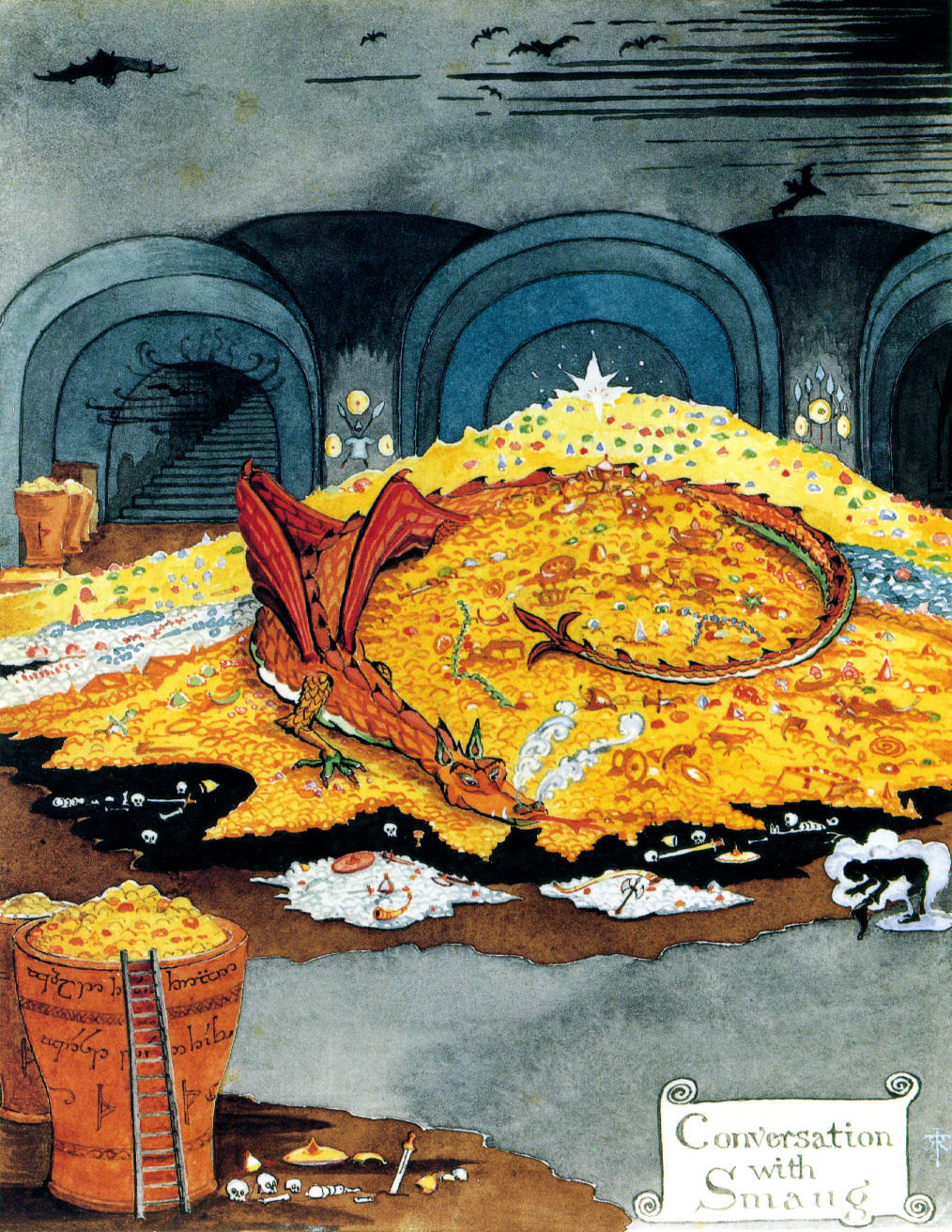
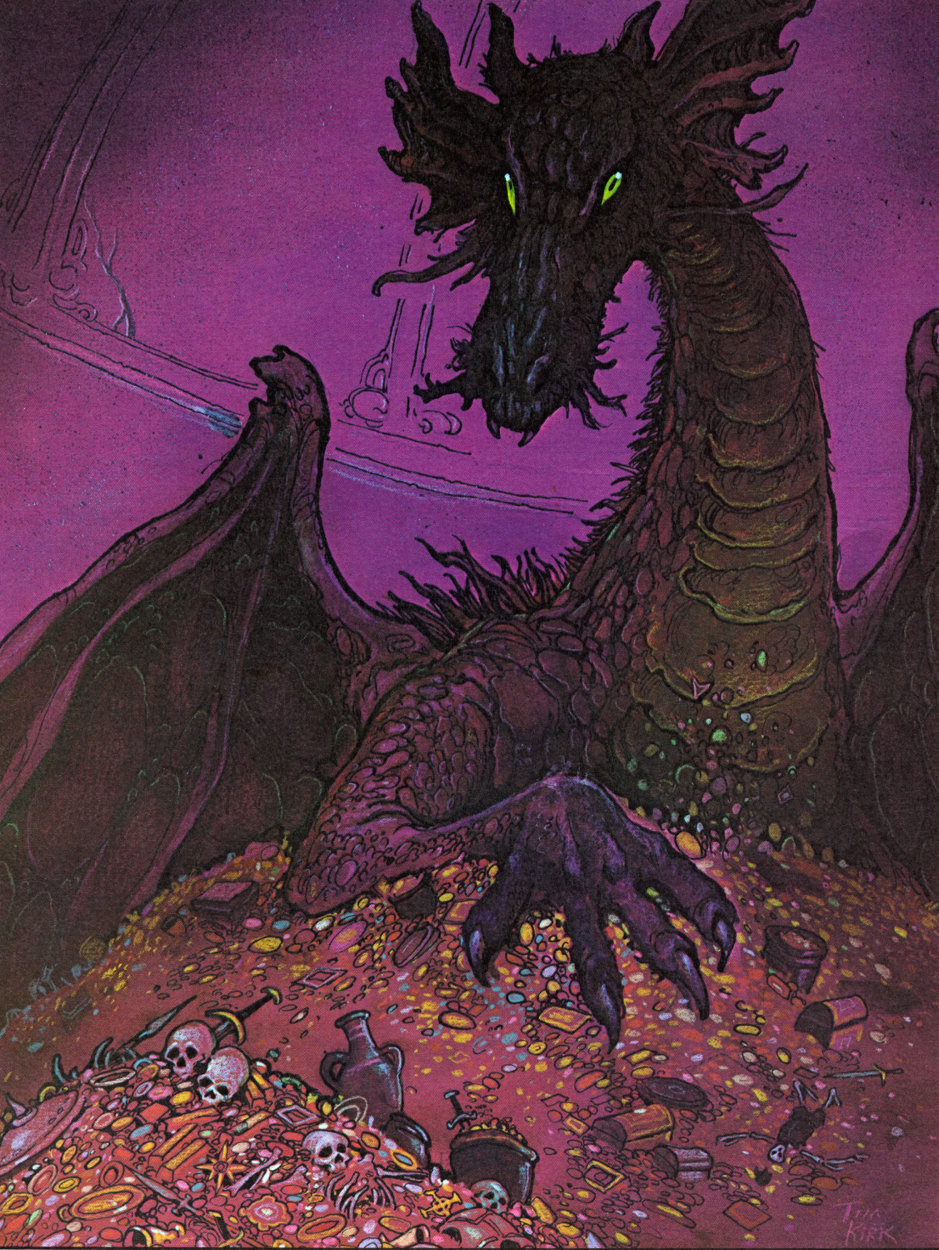

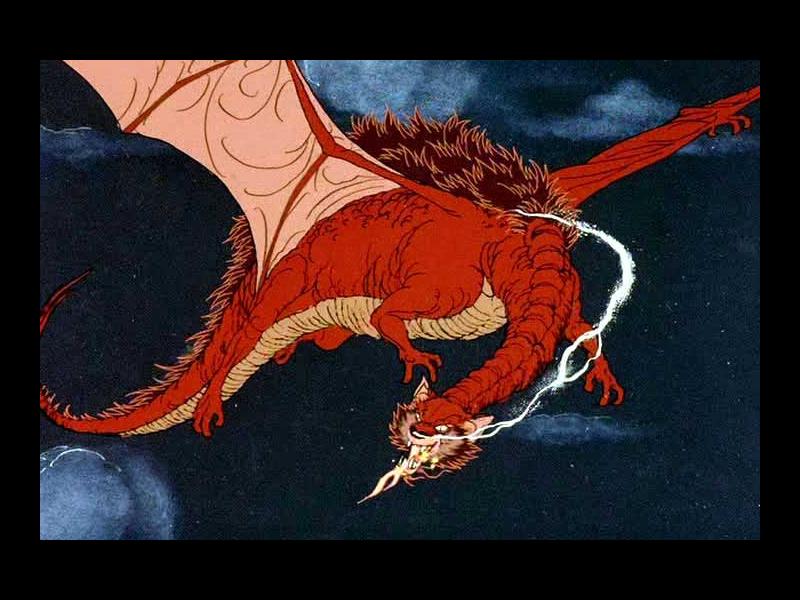
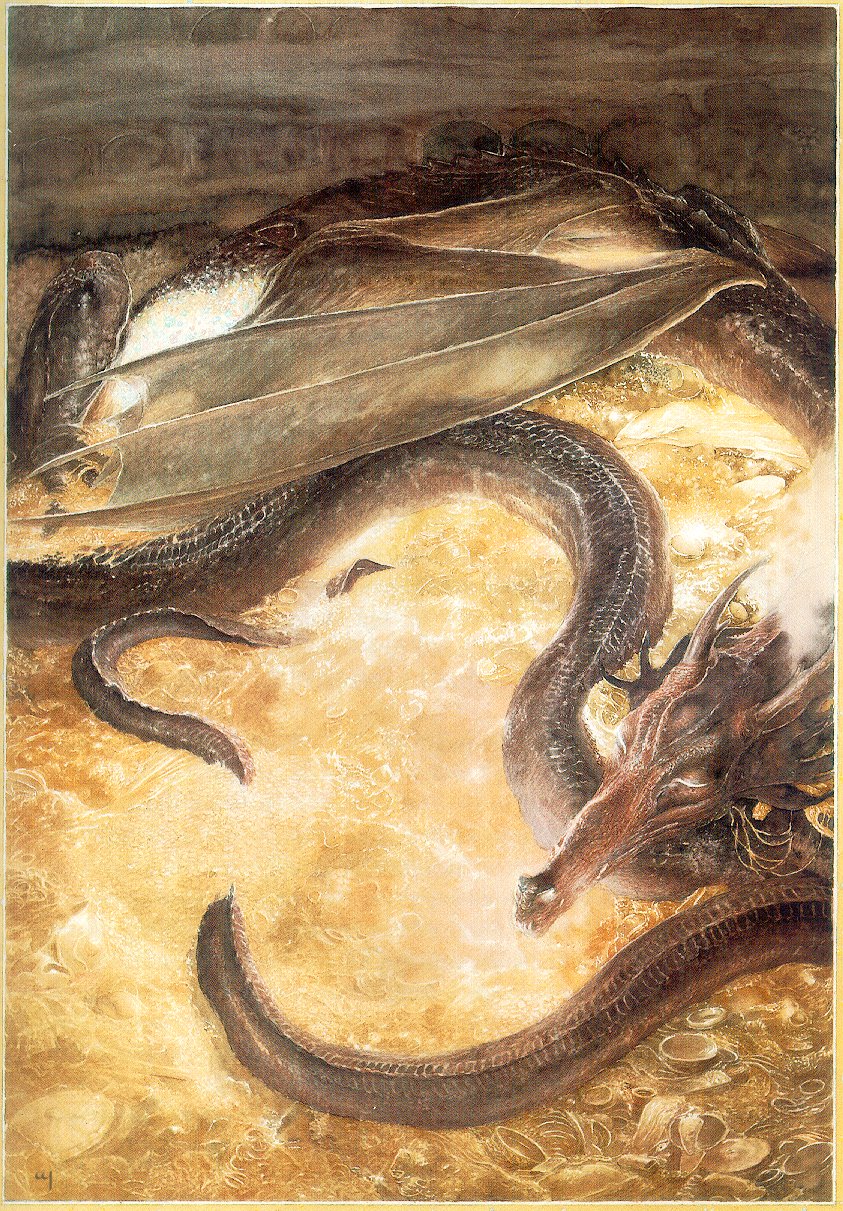
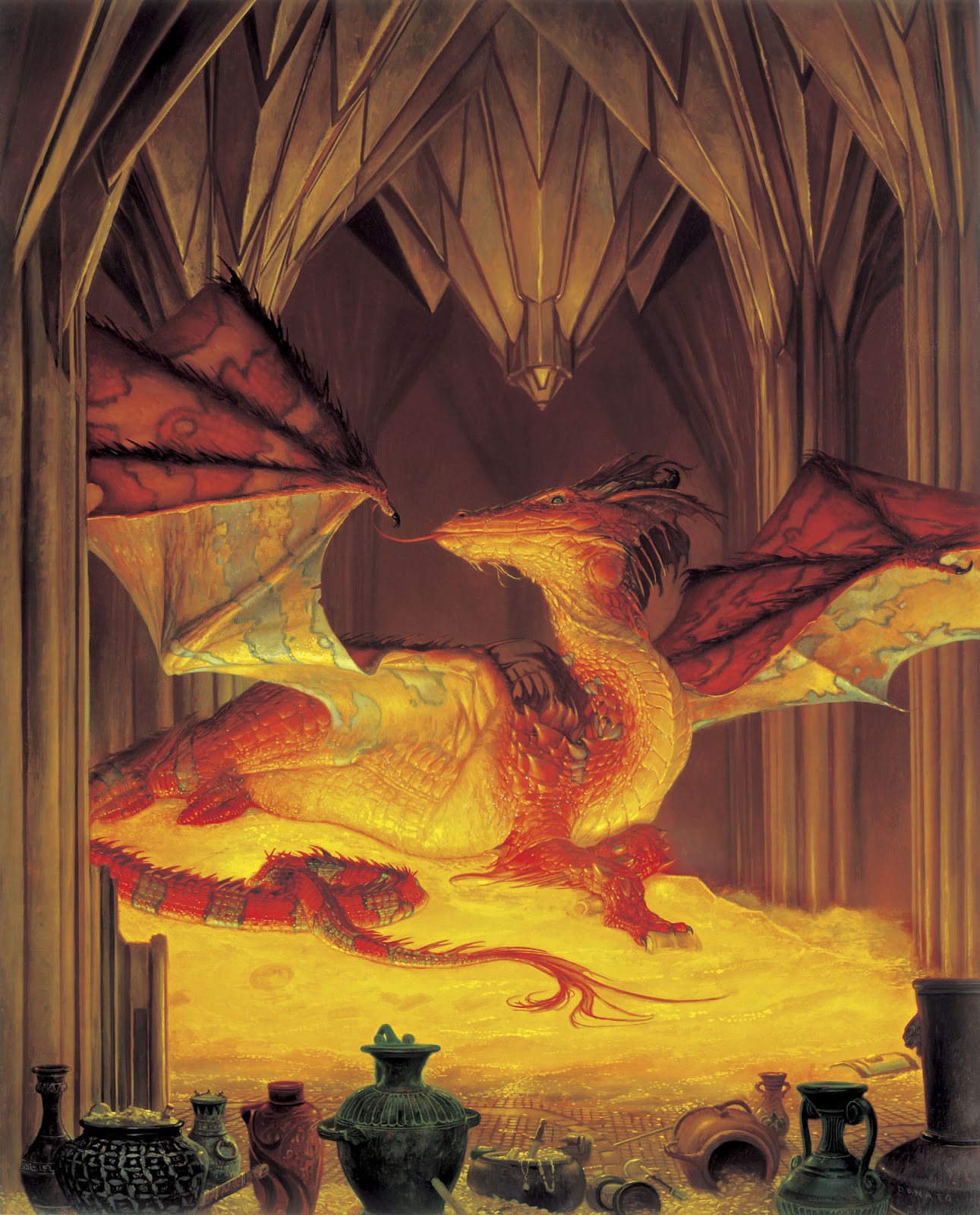
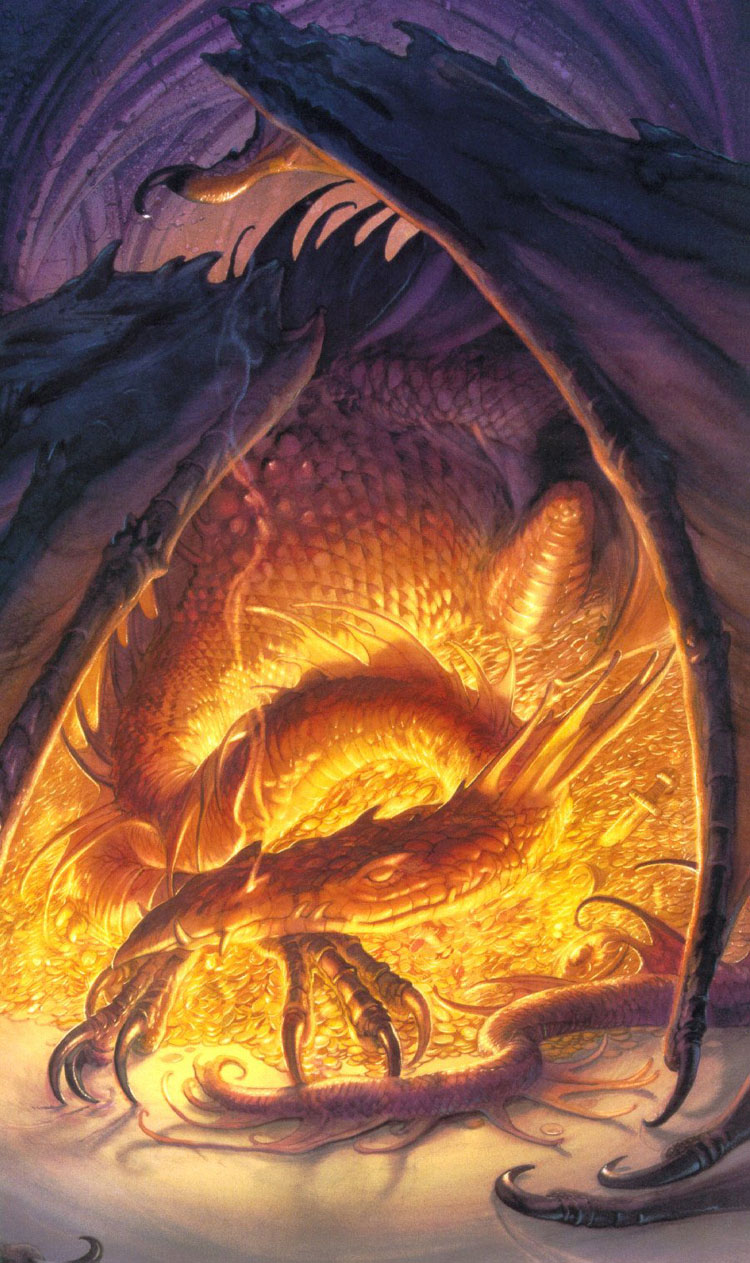
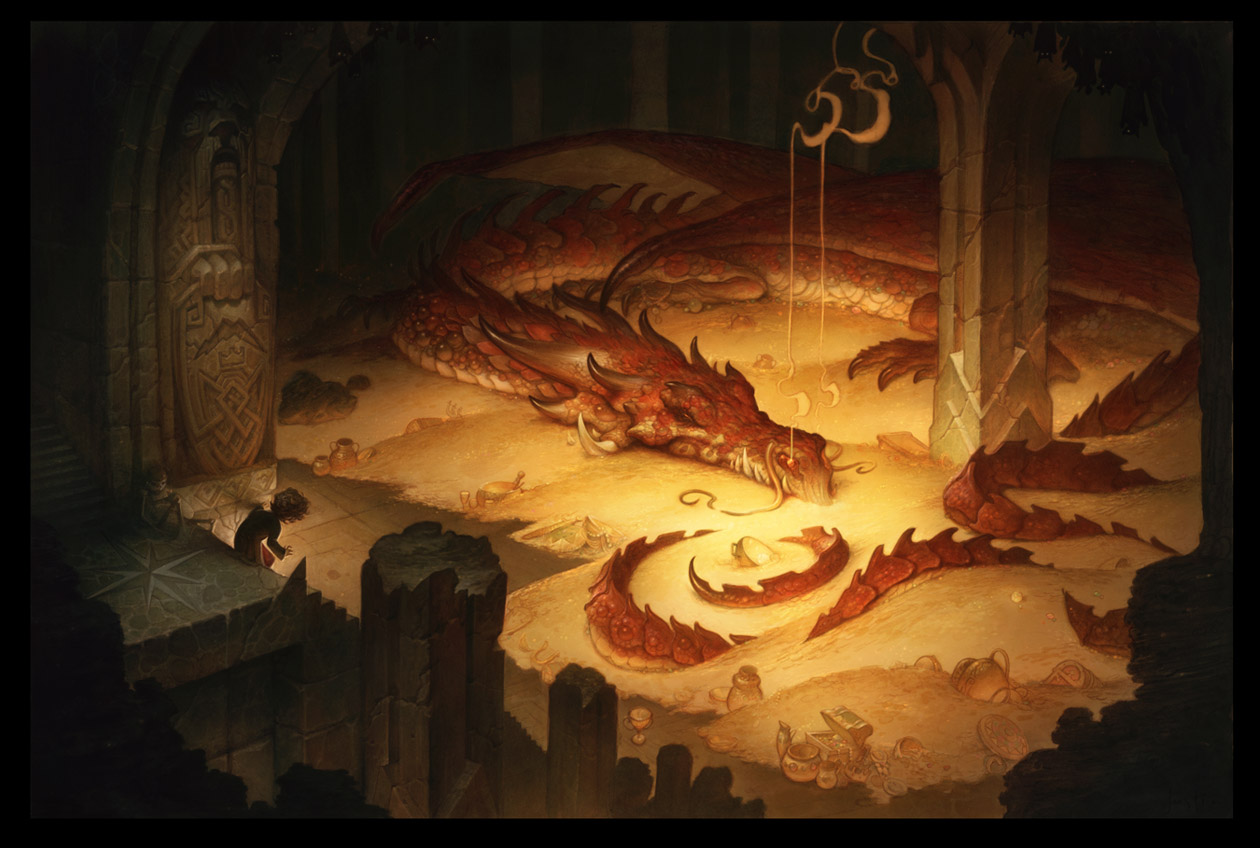
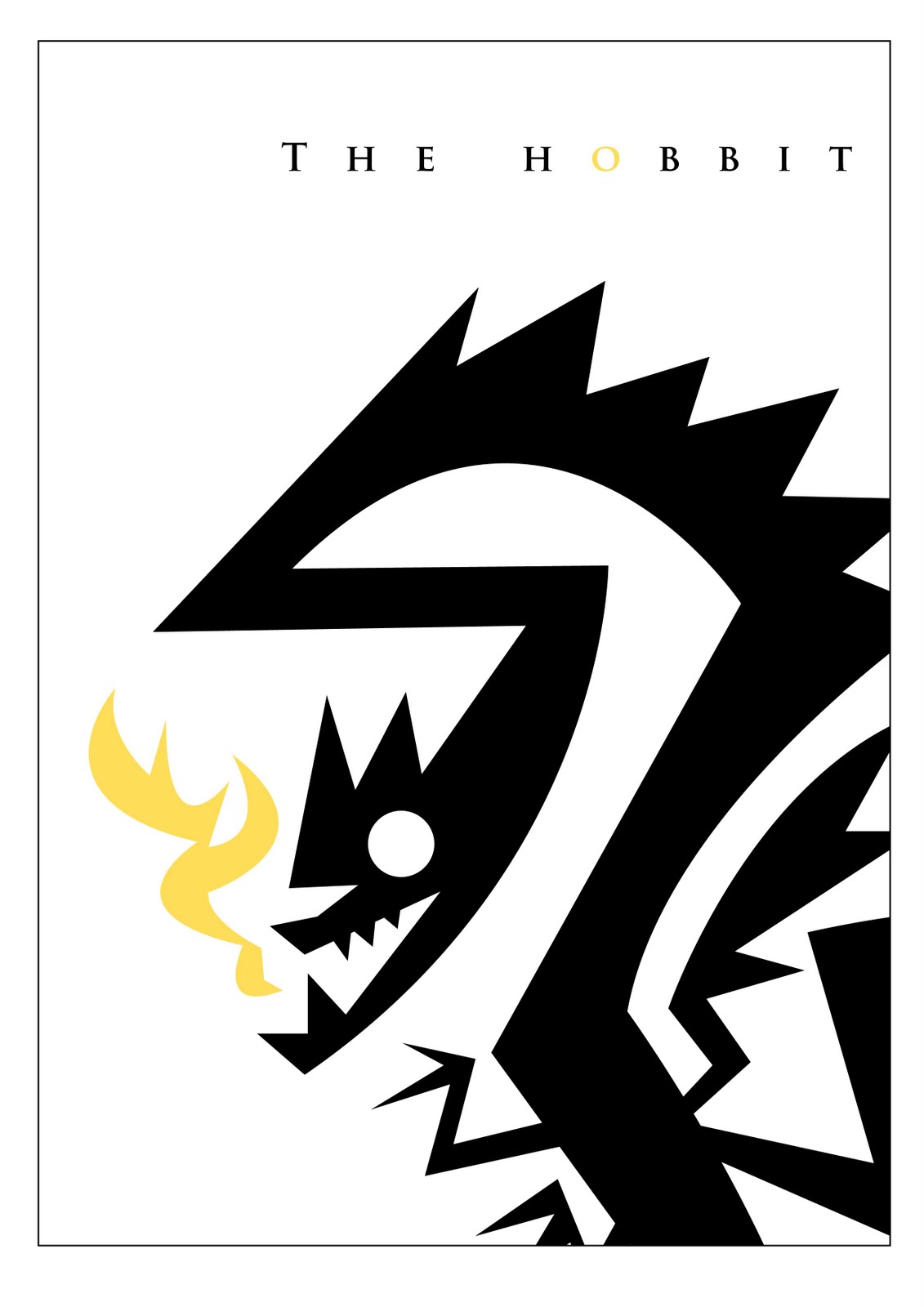
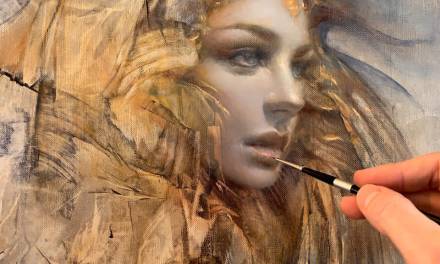
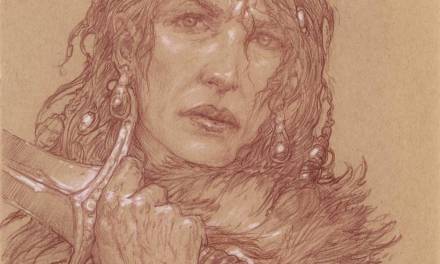

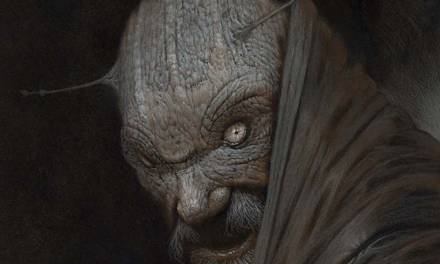
Nice! Great to see a retrospective of dragon representation in modern fantasy illustration! Especially Smaug. (Love the last one, btw…)
I've always been very enamored of Tim Kirk's Tolkien pieces, myself. Also, I really want to see a Smaug by Jeffrey Alan Love – in fact, just give me a full Tolkien calendar by Love…
Shane's version is brilliant, by the way!
Alan Lee's version is the definitive Smaug for me. Most likely because it was my first introduction to the character when I was very young, but also because of it's sheer magnificence.
No David Wenzel? Aw.
I couldn't find good copies of either David's or of Michael Hague's Smaug art, else they'd be represented, too. 🙁
John Howes Smaug was on the cover of the first Bilbo book I read, so that's allways gonna be how I picture him. Nice to see all the different versions though. 🙂
really great post Arnie! Also, I have really always loved Angus McBride's Smaug painting, as well as all of his other LOTR work. Here is his Smaug:
http://www.wallchan.com/images/sandbox/42804-angus-mcbride-smaug.jpg
Love how Justin Gerard came up with the detail of the breath pace, brilliant!
I've never seen Angus' painting before: thanks for sharing!
No problem! The rest of his LOTR work is also really great! There is a book called Angus McBride's Characters of Middle Earth that is filled with great paintings.
My faves from this list would have to be Alan Lee, John Howe, and Justin Gerard.
I bought the Tim Kirk Tolkien calendar when I was in grade school and poured over his illustrations of Tolkien's characters for years afterwards. As much as I liked the Hildebrandt calendars the years after his, I always wished Kirk had done more of them.
Justin truly captured the feeling I get when reading that scene. Not surprising when you look at Tolkien's own depiction.
But…furry Smaug will always tickle the nostalgia bone.
Fun to see the childhood influence that TV movie had on at least one subsequent Smaug artist.
I'll Agree with Kate, John Howe, Alan Lee and Justin are my favourites too,
Also the other ones are great. But, John Howe's interpretation is my book cover, besides, in my mind I see something like Alan Lee and Justing. Makes me want to draw him laying on his mountain of gold to see what design will came up!
No Doubt Tolkien was inspired by the dragon in Beowulf, but I think the Hobbit (as well as the rest of the Lord of the Rings stories) must also must have been inspired by the the Norse legend of Fafnir and Sigurd. Fafnir was a dragon who used to be a dwarf who guarded a cursed “hord of gold” which included a “magic ring.”